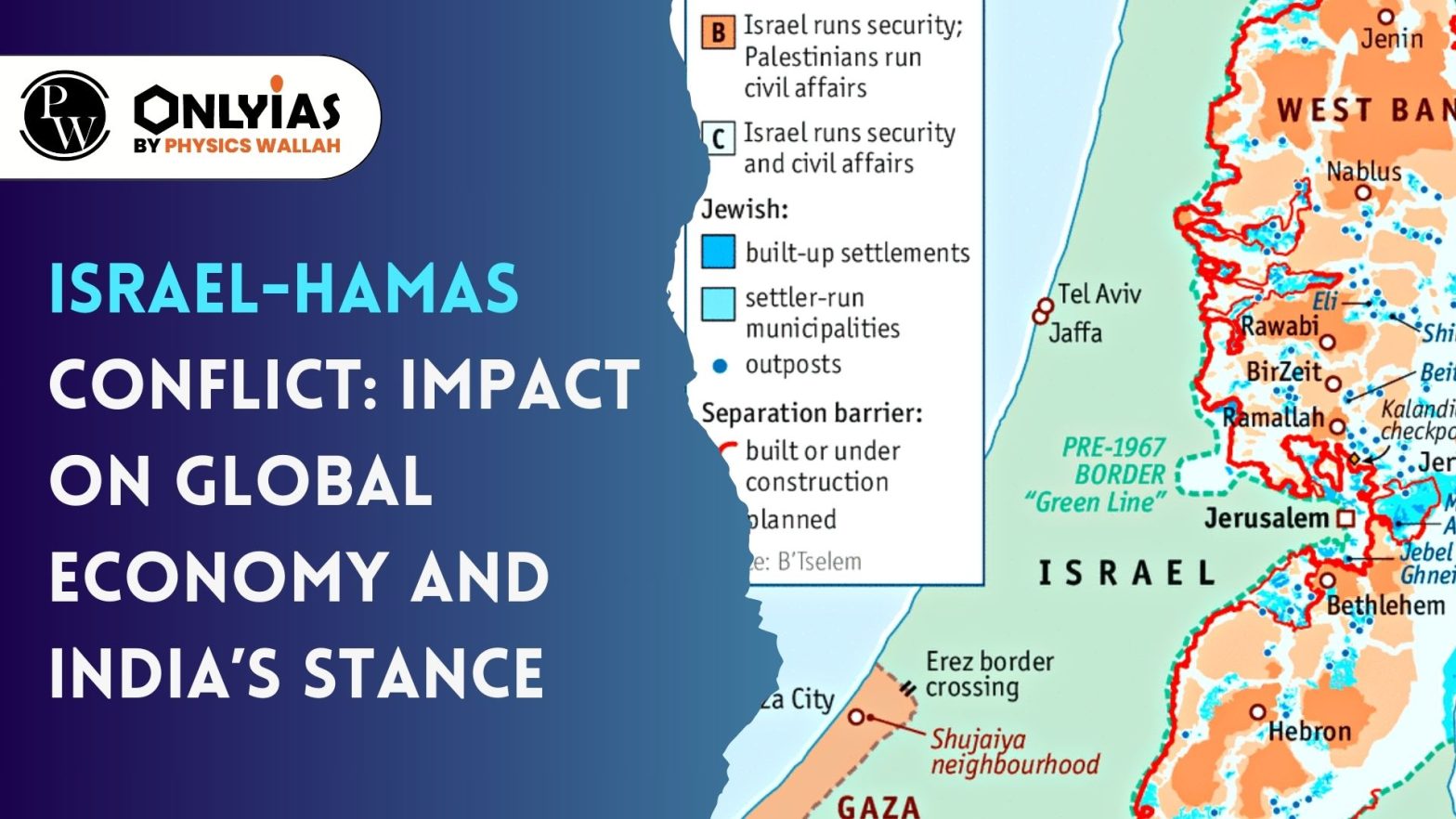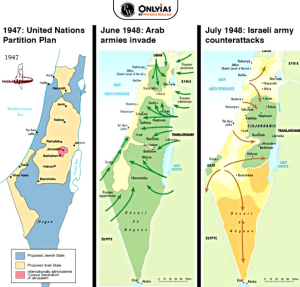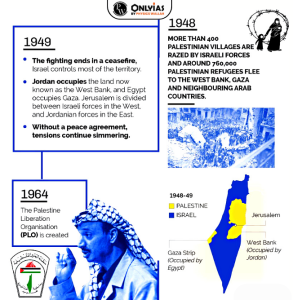The Israeli Prime Minister declared a ‘state of war’ after Hamas militants infiltrated Israeli territory, wreaking havoc.


Who is Hamas?
What is the Gaza Strip?
What is West Bank? |

Impact of the Conflict on the World:
Conclusion
| Must Read | |
| NCERT Notes For UPSC | UPSC Daily Current Affairs |
| UPSC Blogs | UPSC Daily Editorials |
| Daily Current Affairs Quiz | Daily Main Answer Writing |
| UPSC Mains Previous Year Papers | UPSC Test Series 2024 |
The conflict started following the declaration of independence by Israel in 1948. Since then the issue has escalated owing to Israel’s expansionism.
Israel, Palestinian authorities, Hamas, the Western Axis, the Arab League, the UN etc are all stakeholders in this conflict.
The main reasons include the issue of occupation by Israel, apart from the right of self-determination for Palestinians. The use of proxies by regional players is also a reason.
The issue has impacted India in all forms, including diplomacy, trade, defence as well as strategic ties with Arab countries.
When it comes to the larger Israel-Palestine issue, India has always been in favour of a peaceful solution, which respects the rights of all the parties.
<div class="new-fform">
</div>